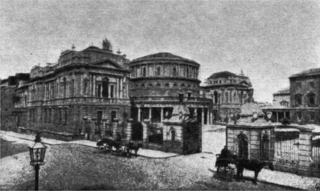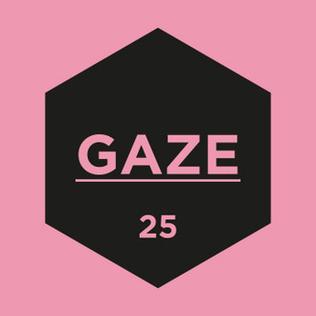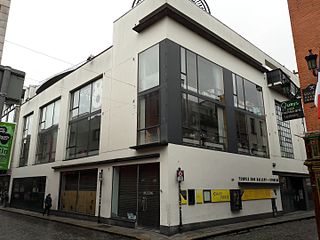The International Dublin Gay Theatre Festival is a theatrical event held annually in Dublin, Republic of Ireland, during the first two weeks of May. The 19th festival will be held from 2–15 May 2022. Over 50% of the festival's content comes from outside Ireland. The Festival has included productions from countries as diverse as Poland, Germany, Zimbabwe, France, Spain, Australia, South Africa, Venezuela and Canada as well as strong representation from the UK, Ireland and the United States. Festival 2016 saw the 3,500th performance of a Festival production since 2004.

Gay Community News (GCN) is Ireland's longest-running free LGBTQ+ publication and press; it is based in Dublin, and founded in 1988. It has been referred to as the "paper of record" for the Irish LGBTQ+ community.

Tonie Walsh is an LGBT rights activist, journalist, disc jockey, founding editor of Gay Community News (Dublin) and founder of the Irish Queer Archive.
The Hirschfeld-Eddy Foundation was founded in Berlin in June 2007. It is a foundation focused on human rights of lesbian, gay, bisexual and transgender (LGBTQ) people.
The Gay and Lesbian Equality Network (GLEN) was an Irish LGBTQ rights group based in Dublin, Ireland. It was founded in 1988 by Don Donnelly, Charles Kerrigan, Suzy Byrne, Kieran Rose and Christopher Robson. It focused on achieving change in legislation and social policy to achieve full equality and inclusion for lesbian, gay and bisexual and transgender (LGBT) people in Ireland, and protection from all forms of discrimination. Its board of directors were Margot Slattery (chair), Simon Nugent, Muriel Walls, Séamus Dooley and Dr. Fergus Ryan. In May 2017 it was announced that it would close.

Irish Queer Archive (IQA) is a comprehensive collection of material in Ireland relating to homosexuality, LGBT literature and general queer studies.

The Dublin LGBTQ+ Pride Festival is an annual series of events which celebrates lesbian, gay, bisexual, transgender, queer (LGBTQ+) life in Dublin, Ireland. It is the largest LGBTQ+ pride festival on the island of Ireland. The festival culminates in a pride parade which is held annually on the last Saturday in June. The event has grown from a one-day event in 1974 to a ten-day festival celebrating LGBT culture in Ireland with an expanded arts, social and cultural content.

The GAZE International LGBT Film Festival Dublin is an annual film festival which takes place in Dublin, Ireland each Bank Holiday weekend in late July and early August. Founded in 1992, it has become Ireland's largest LGBTQ film event, and the country's biggest LGBT gathering aside from Dublin Pride.
Growing Up Gay was a groundbreaking two-part documentary series broadcast on RTÉ One, which began on Monday 19 April 2010 at 9.35pm. It explored the experiences of the first generation of lesbian, gay, bisexual and transgender (LGBT) people growing up in an Ireland where it was legal to be themselves. Filmed over 18 months, it was made by Crossing the Line Films with the ongoing support and advice of Ireland's national organisation for Lesbian, Gay, Bisexual and Trans young people, BeLonG To. It featured LGBT school-goers, Muslims, and young people facing persecution in their hometowns across Ireland.
The following is a timeline of lesbian, gay, bisexual, transgender and queer (LGBTQ) journalism history.

Elizabeth Frances Schwartz is an American attorney, author, and advocate for the legal rights of the lesbian, gay, bisexual, and transgender (LGBT) community.

Fownes Street is a street in Dublin in the Republic of Ireland that runs from Wellington Quay in the north to Dame Street in the south.

Annie Hoey is an Irish Labour Party politician who has served as a Senator for the Agricultural Panel since June 2020.
Philip F. Tyler was an Irish actor and television presenter.
Junior Larkin, also known by his stage name Kylie O'Reilly, was an Irish drag queen and gay rights activist.

Outhouse LGBTQ+ Centre is a community centre and café for LGBTQ+ people on Capel Street in Dublin, Ireland. It was preceded by the Hirschfeld Centre, the first gay and lesbian community centre in Ireland. It provides a range of services and facilities including HIV testing, a theatre, cafe and Ireland's only queer library. Outhouse's advocacy priorities are poverty, homelessness, and the safety of the LGBTQ+ community, and aims to develop a new advocacy casework support service. In 2016, 35,000 people visited the centre.










